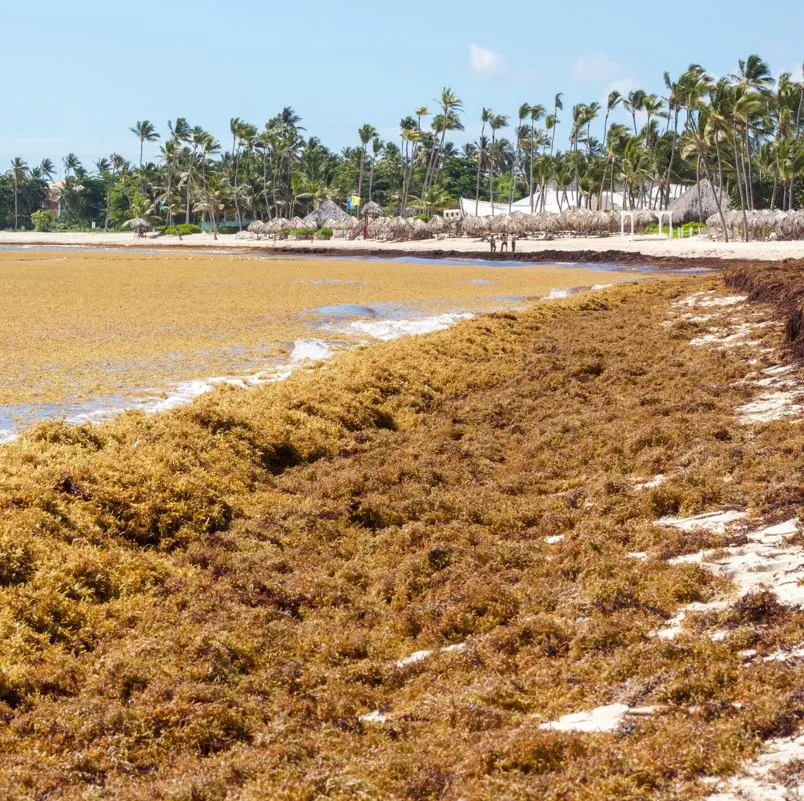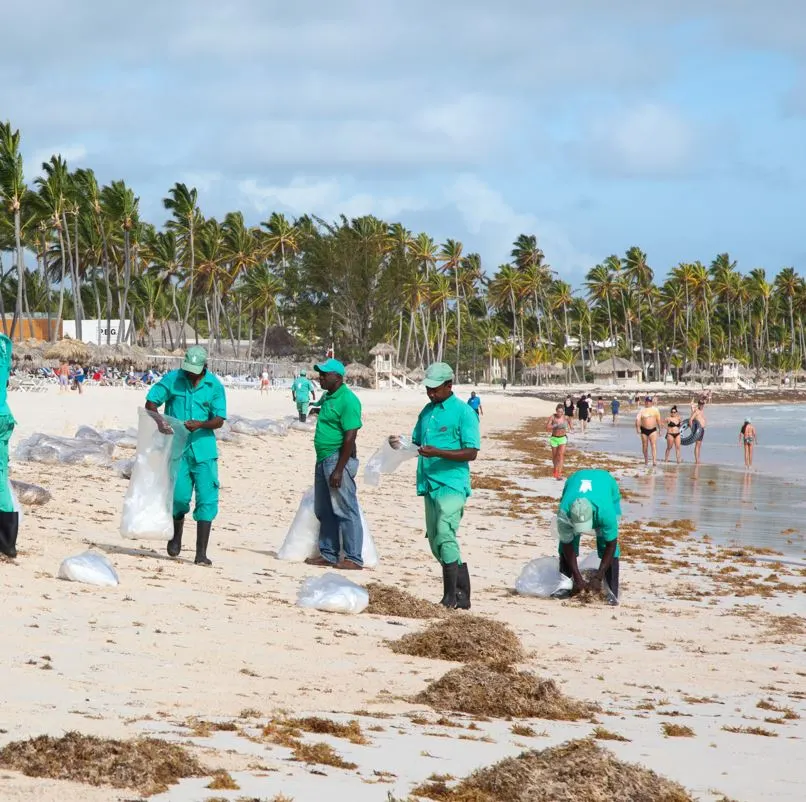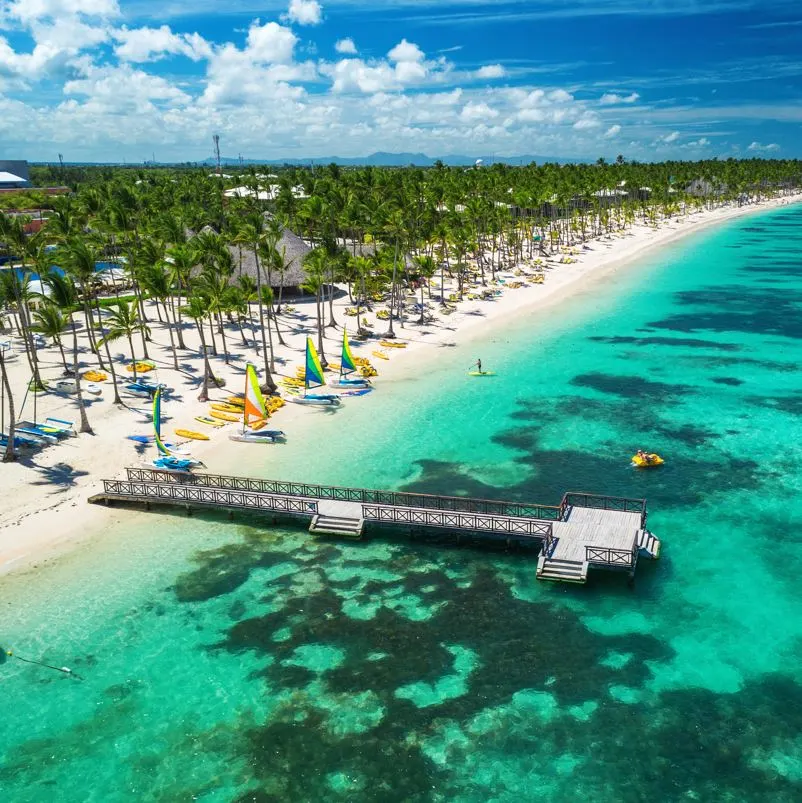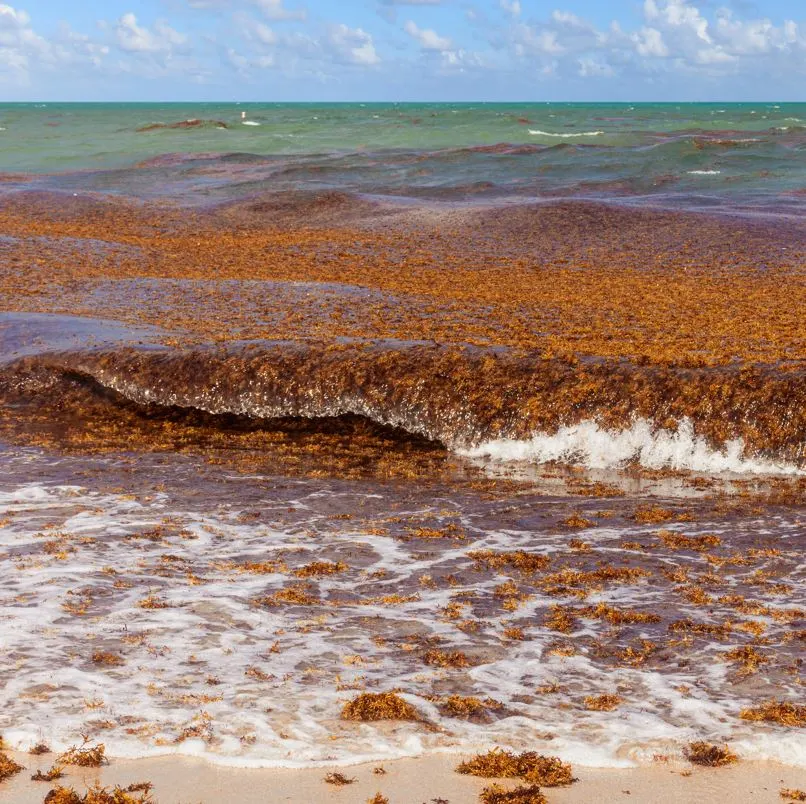Last Updated
This week, high levels of sargassum have been found on tourist-frequented beaches in Punta Cana. The foul-smelling brown microalgae (or seaweed) has been photographed at multiple points on Bavaro Beach by the official source for news and maps of sargassum – Sargussm Monitoring.

On Twitter, the page stated it has found a large concentration of the invasive plant around the Iberostar Selection Bavaro and the Bahia Principe Punta Cana hotels.
Here, the images show how the sargassum has completely enveloped the front portion of the beach, right next to the surf. This will significantly impact beach goers over the next few weeks, as the removal process is slow and arduous. First-time visitors to the sun-soaked country, who may be there to snorkel, kitesurf, or simply paddle, will now have to navigate the unsightly seaweed to enter the sea.
Whilst the sargassum has not been on Punta Cana beaches for long this year, there are fears that this is only the beginning of the story. It is highly likely that the issue will worsen over the summer months, raising concerns from officials and hoteliers alike that the smelly plant will put-off tourists who have chosen the Dominican Republic as their ultimate summer destination.
This has the potential to ruin the current record-breaking number of international arrivals that have taken the Dominican Republic by storm this year.

This has unfortunately already happened in other Latin American countries, such as Mexico, where high levels of sargassum contributed to a 10% decrease in departing and arriving flights from Cancun International Airport.
Sargassum originates in the Atlantic Ocean: it is easily identifiable as a brown, coarse plant with air bubbles, that typically floats on the surface of the sea. Whilst it can be extremely beneficial to marine ecosystems, it also has the potential to release harmful bacteria and microbes into the atmosphere, which has previously resulted in skin irritation. It also has the ability to collect floating garbage as it drifts ashore, which pollutes the pristine beaches.

To remove the sea plant, hotels often employ workers to collect it by hand, using a wheelbarrow. This means it takes a long time to remove and is often a very expensive process. To make matters worse, Caribbean hotels situated alongside beaches overrun with sargassum have reported huge reductions in occupancy after an unexpected amount of the plant began to wash up in 2011.
To minimise the amount of sargassum on the beach, the Dominican government invested USD $2.8 million in a sargassum barrier in 2020. This barrier now stretches 12.7 kilometres along the Bavaro beachfront. However, this only covers 40% of the beach area of Bavaro’s hotels and resorts, meaning greater protection is needed in the more vulnerable areas of Arena Blanca and Uvero Alto.

As of May 25th, the National Authority Of Maritime Affairs of the Dominican Republic (Anamar) stated they had acquired a new satellite service to monitor the levels of sargassum in Dominican waters. In an interview for Diaro Libre, the director of Anamar, Jimmy Saviñón, explained that the satellite system would give hoteliers and state institutions “the approximate amount” of sargassum expected, and “where on our coasts it will arrive”.

This new system will provide updates on sargassum levels every four hours and will capture images of the invasive seaweed by up to 20 meters of the sea’s surface. This aims to give vacationers an understanding of what Bavaro beach will look like in real-time. As more sargassum is set to arrive in Punta Cana as the summer continues, visitors should monitor the updates closely to make the best of their time in the Dominican Republic.
Plan Your Next Dominican Republic Vacation:
Traveler Alert: Don’t Forget Travel Insurance For Your Next Trip!
Choose From Thousands of Dominican Republic Hotels, Resorts and Hostels with Free Cancellation On Most Properties
↓ Join the community ↓

Subscribe to our Latest Posts
Enter your email address to subscribe to Dominican Republic Sun’s latest breaking news affecting travelers, straight to your inbox.

Rosemarie
Wednesday 22nd of March 2023
Thank you for all of you daily informative articles!